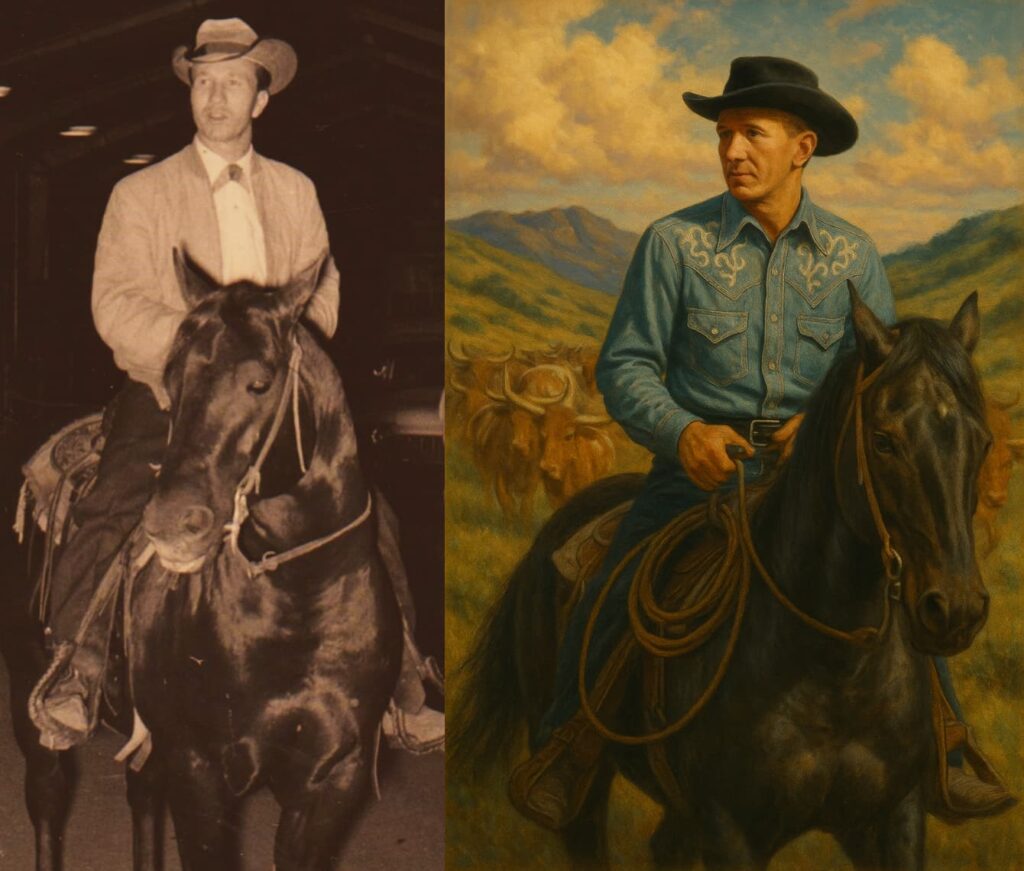
A Ballad of Unfulfilled Dreams and the Harsh Reality of the Old West
In the hallowed halls of country and western music, there are songs that feel less like compositions and more like echoes from a forgotten time. They are dusty, melancholic portraits painted with the grit and spirit of an era that shaped the American identity. Marty Robbins‘s rendition of “Little Joe The Wrangler” is one such masterpiece. Released in 1960 on the album More Gunfighter Ballads and Trail Songs, this track is not just a song; it’s a piece of history, a poignant narrative that speaks to the universal themes of youth, hope, and the often-unforgiving nature of life. While the album itself reached a respectable No. 13 on the Billboard Top Country Albums chart, the true measure of this song’s impact lies not in its chart performance but in its timeless, resonant storytelling.
The story behind “Little Joe The Wrangler” is a fascinating journey through American folklore. Originally a traditional cowboy ballad, its roots can be traced back to the late 19th century. Many versions of the song exist, but the most famous one is attributed to Jack Thorpe, a cowboy and folklorist who collected and published the lyrics in his 1908 book, Songs of the Cowboys. Thorpe’s version, which Marty Robbins so brilliantly interprets, tells the heart-wrenching tale of a young, ambitious boy who dreams of becoming a full-fledged cowboy. The “Little Joe” in the title is not just a character; he is a symbol of every young person who has ever left home with stars in their eyes, ready to conquer the world. The song follows him as he joins a cattle drive, eager to prove his worth. His enthusiasm and innocence are palpable, a beacon of light against the rugged backdrop of the trail.
Marty Robbins‘s genius lies in his ability to imbue this already powerful narrative with a profound sense of melancholy and authenticity. His smooth, rich baritone, a voice that could convey both the swagger of a gunslinger and the vulnerability of a lost soul, is the perfect vehicle for this tale. He doesn’t just sing the words; he becomes the narrator, a weathered old cowboy reminiscing about a young life cut short. The song’s meaning is a sobering one, a stark reminder that the dreams of youth are often no match for the harsh realities of the world. Little Joe’s tragic end, caught in a stampede, is a devastating moment that serves as a powerful metaphor for the fragility of life and the futility of ambition in the face of fate. It’s a moment that stays with you, long after the final notes fade.
For those of us who grew up listening to these songs, “Little Joe The Wrangler” is more than just a memory; it’s a portal back to a simpler time, a time when stories were told around campfires and the world felt vast and full of possibility. The song evokes a deep sense of nostalgia, not just for the past, but for the innocence we’ve all lost along the way. It’s a reminder of our own “Little Joe” moments—the times we set out on our own adventures, full of hope and naivete, only to be met with the hard lessons that life inevitably teaches. Marty Robbins‘s performance is a masterclass in emotional storytelling, a testament to the enduring power of a well-told tale. It is a song that doesn’t just entertain; it resonates with the soul, leaving an indelible mark on all who listen. It’s a classic for a reason, a timeless ballad that continues to speak to the human condition with an honesty and poignancy that few others can match.